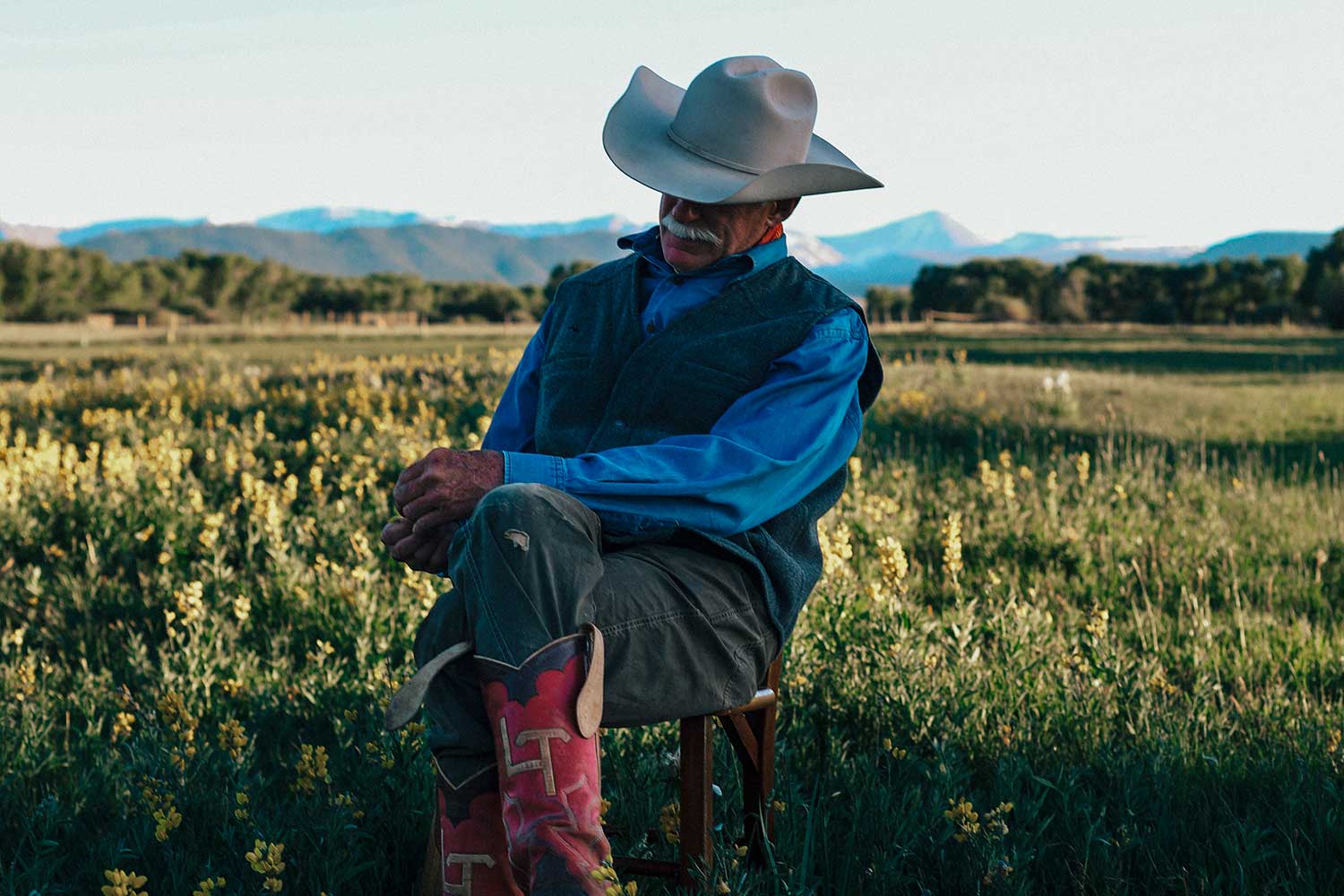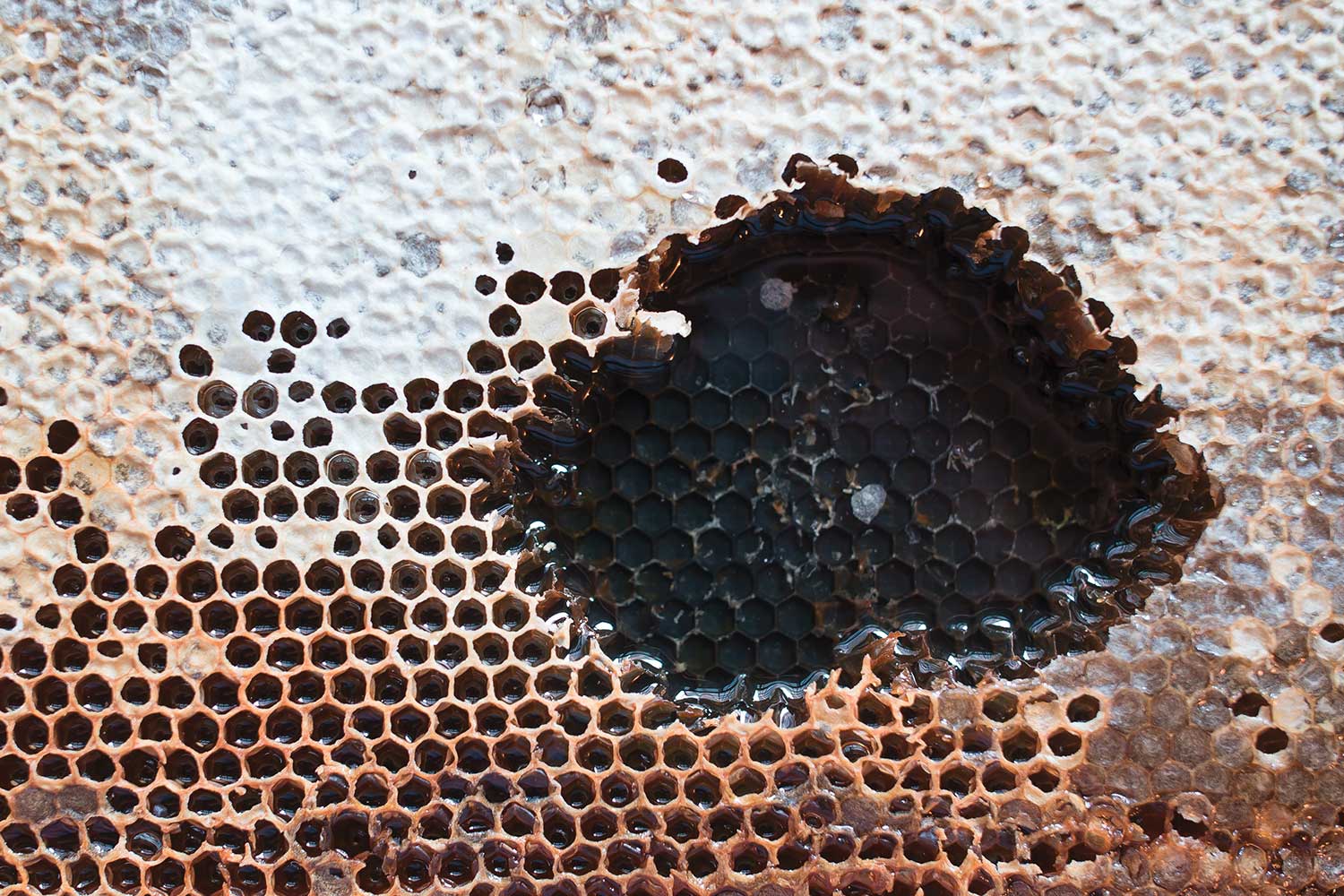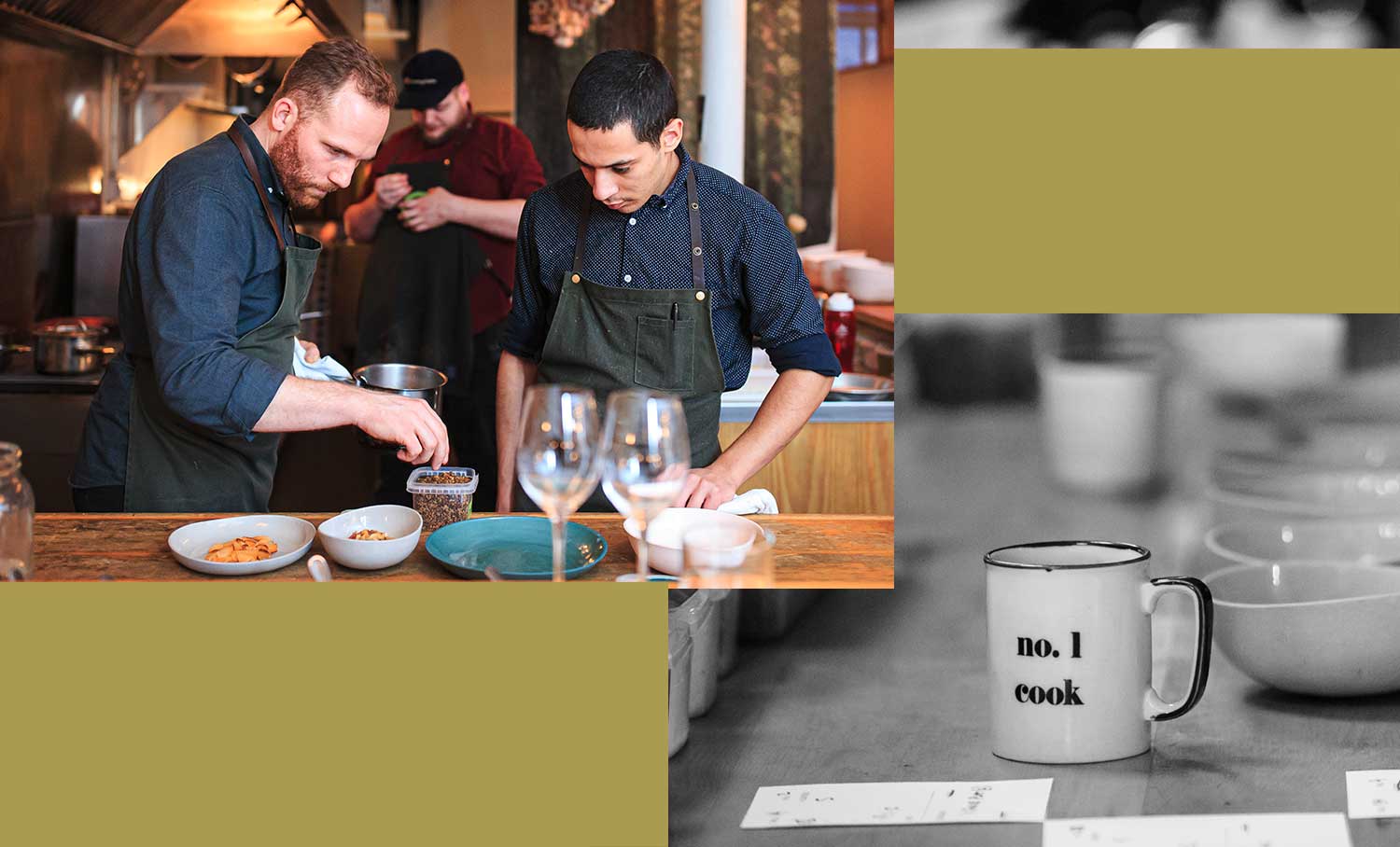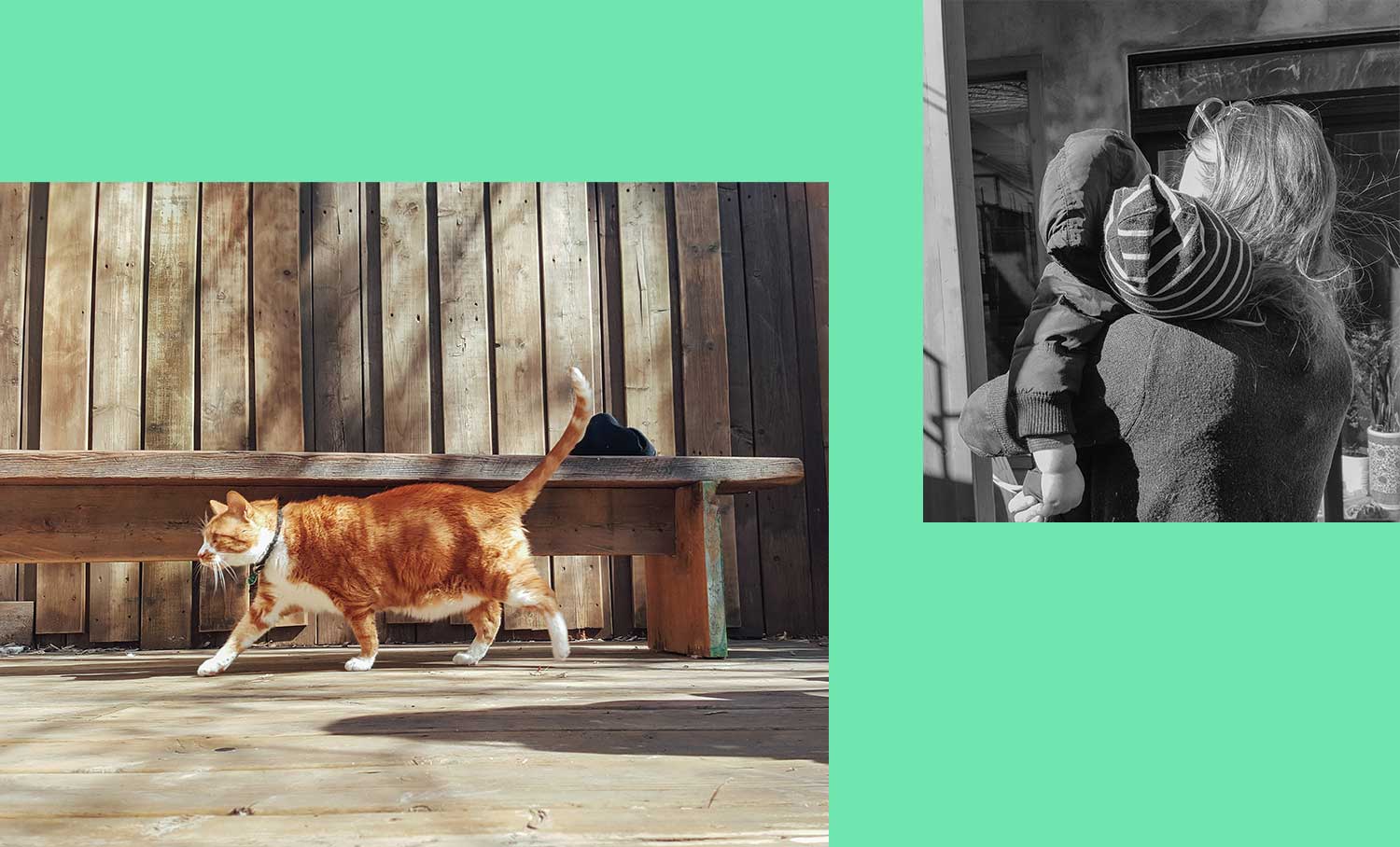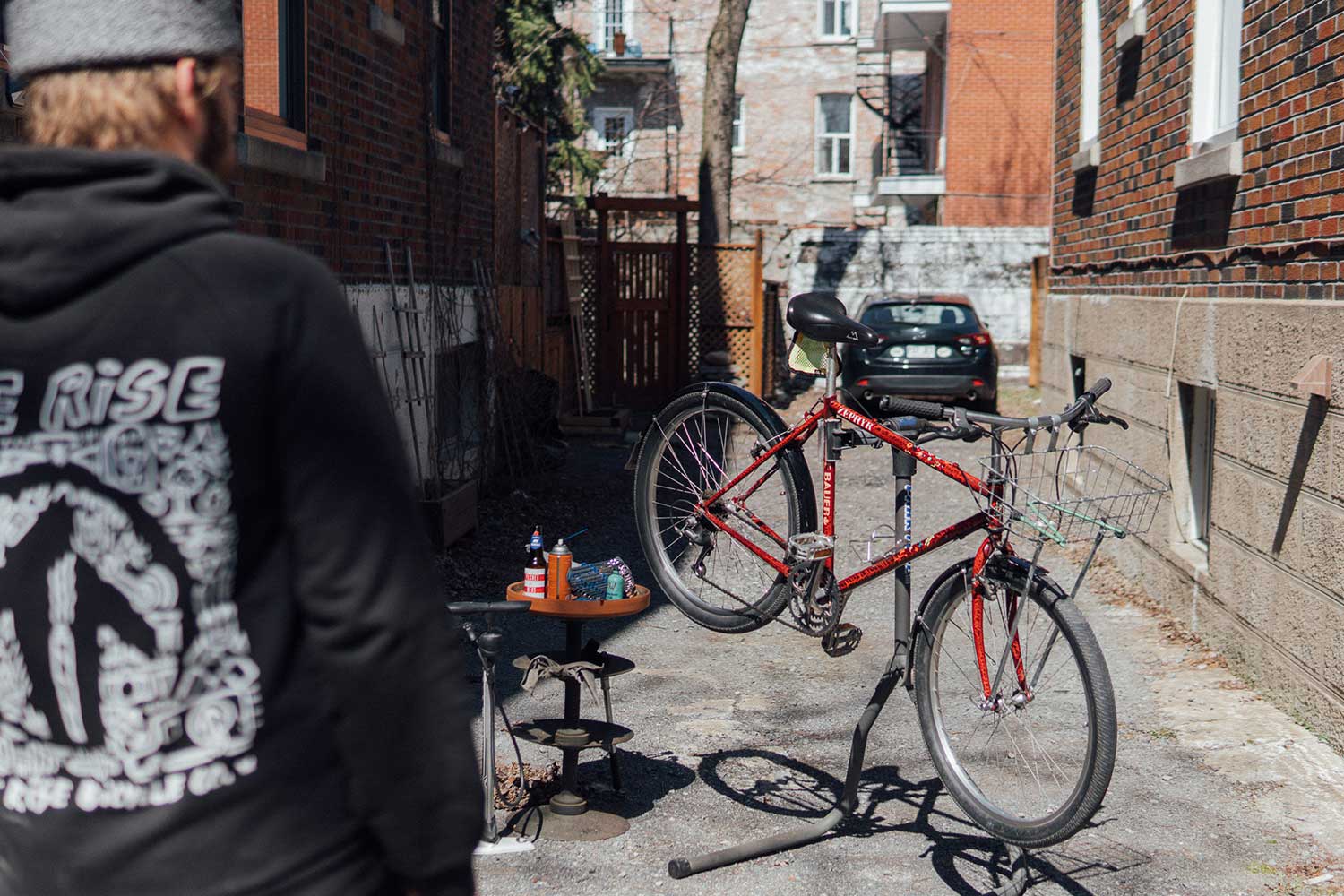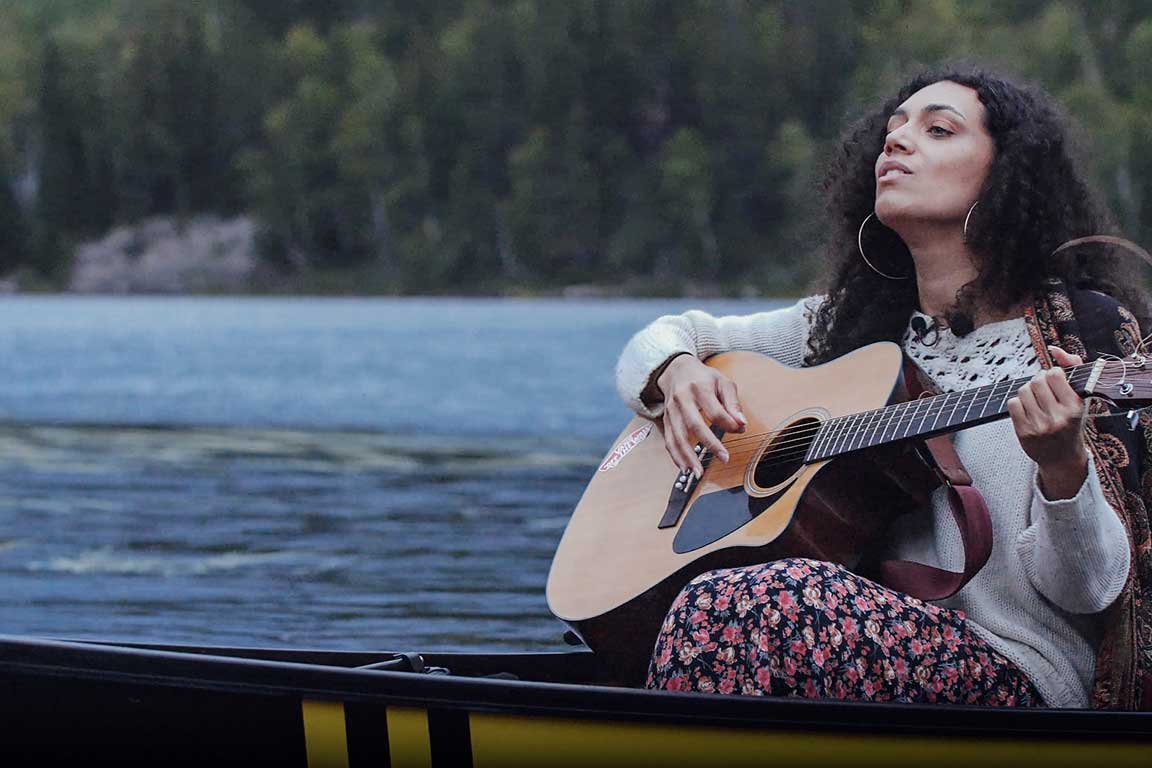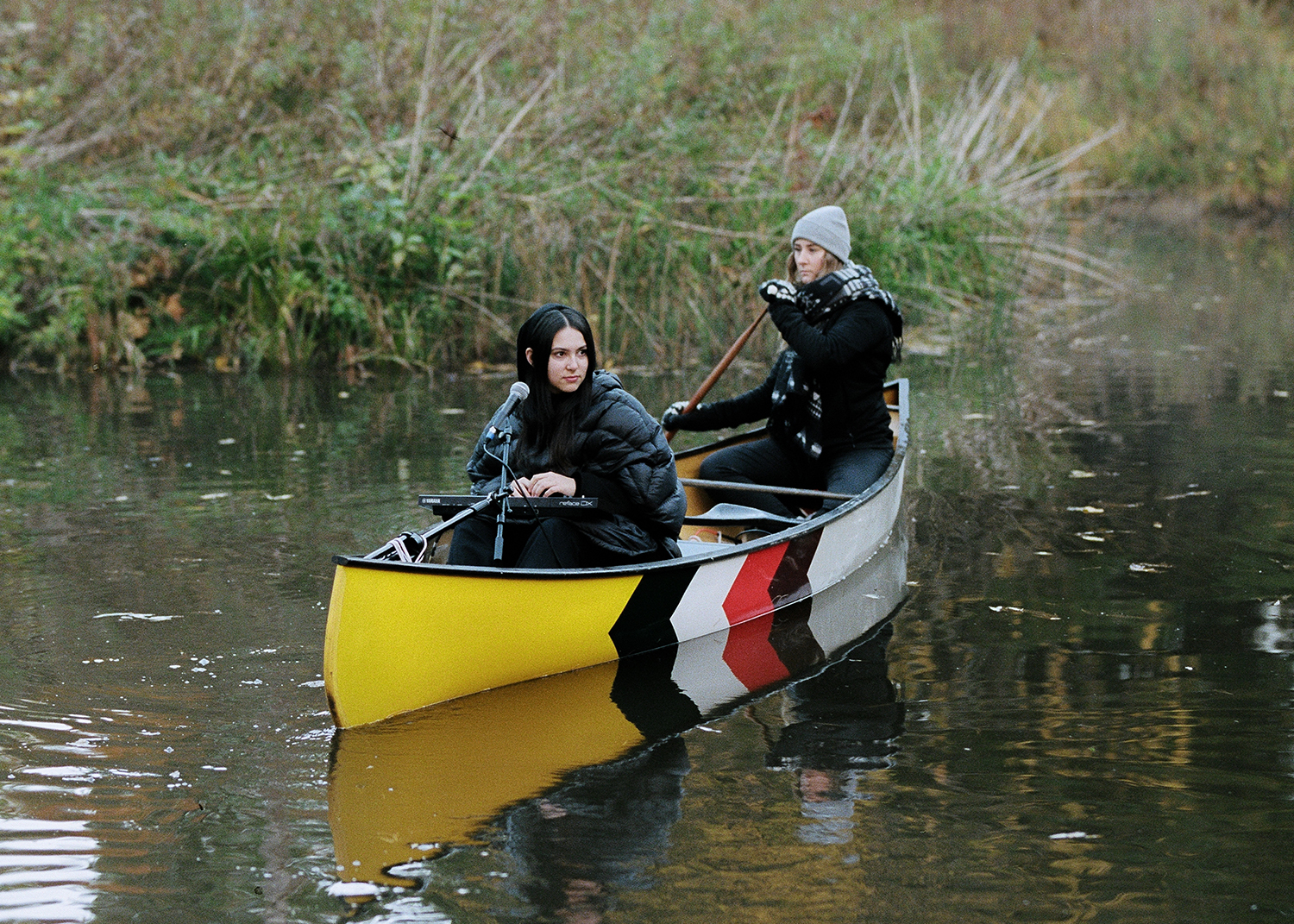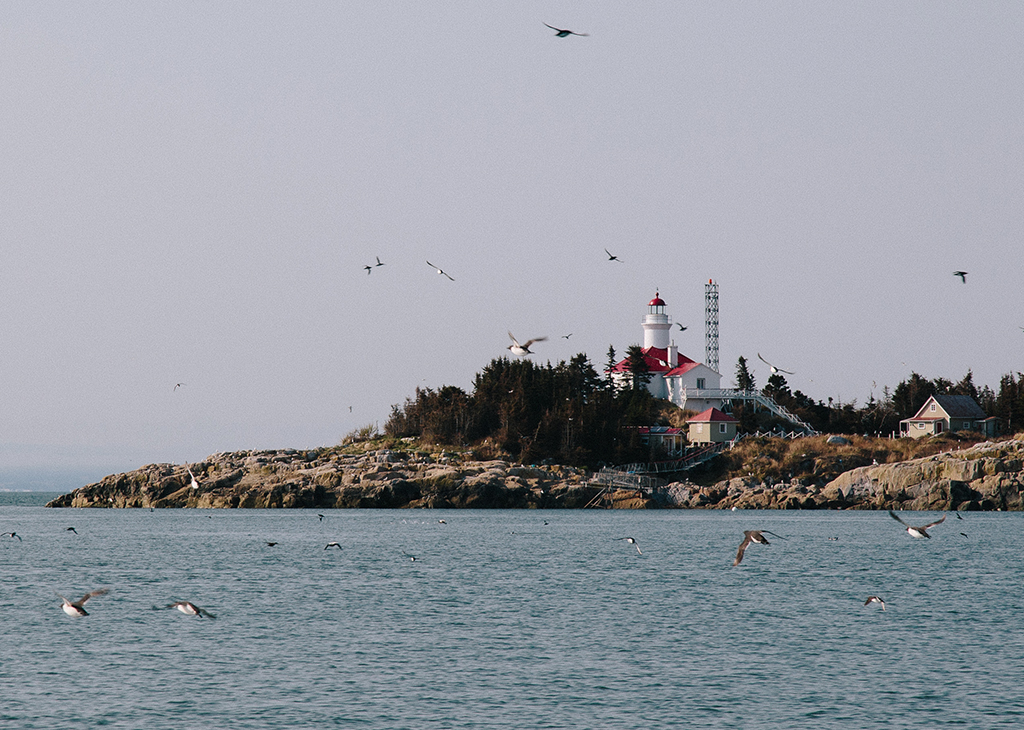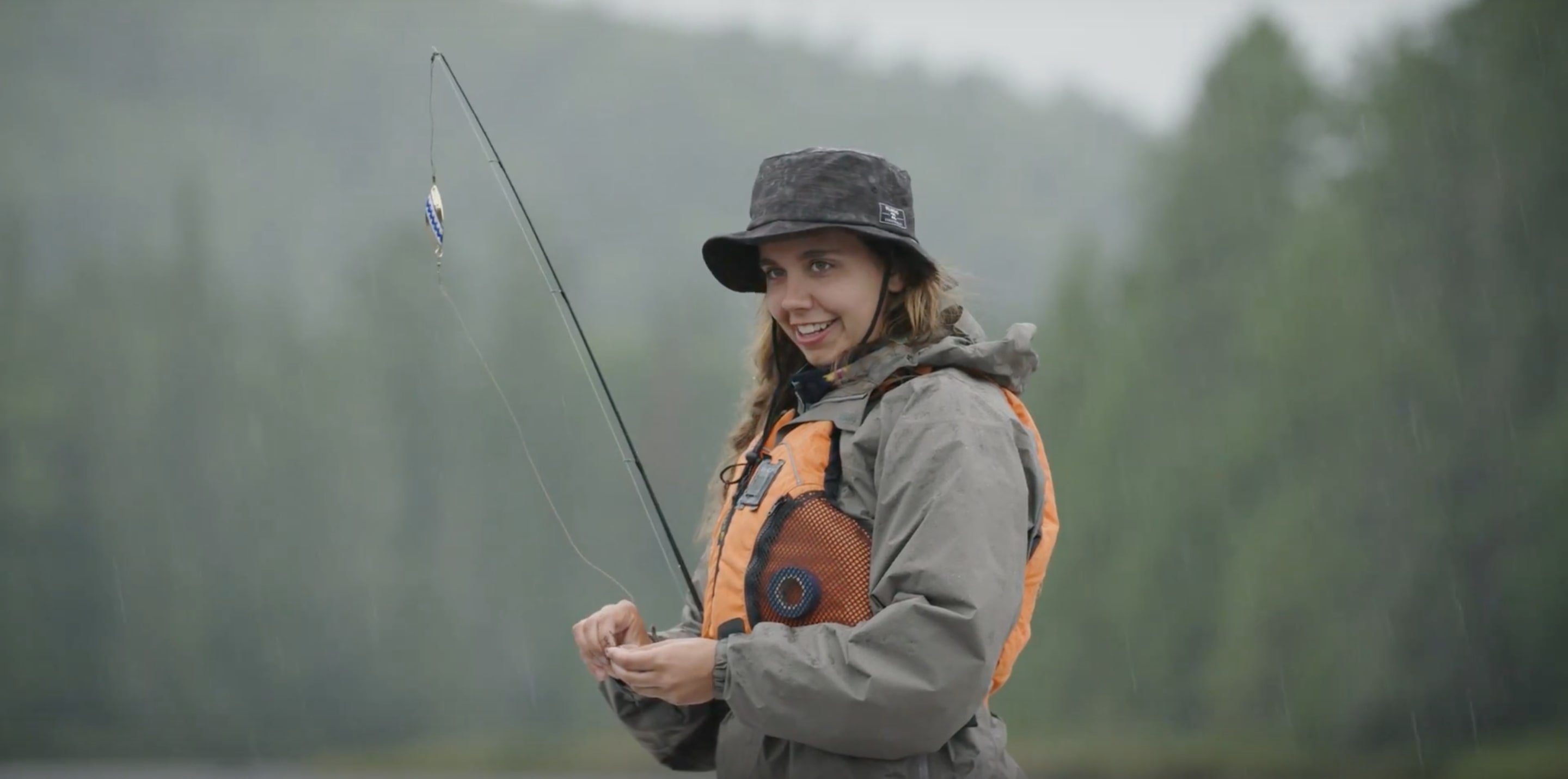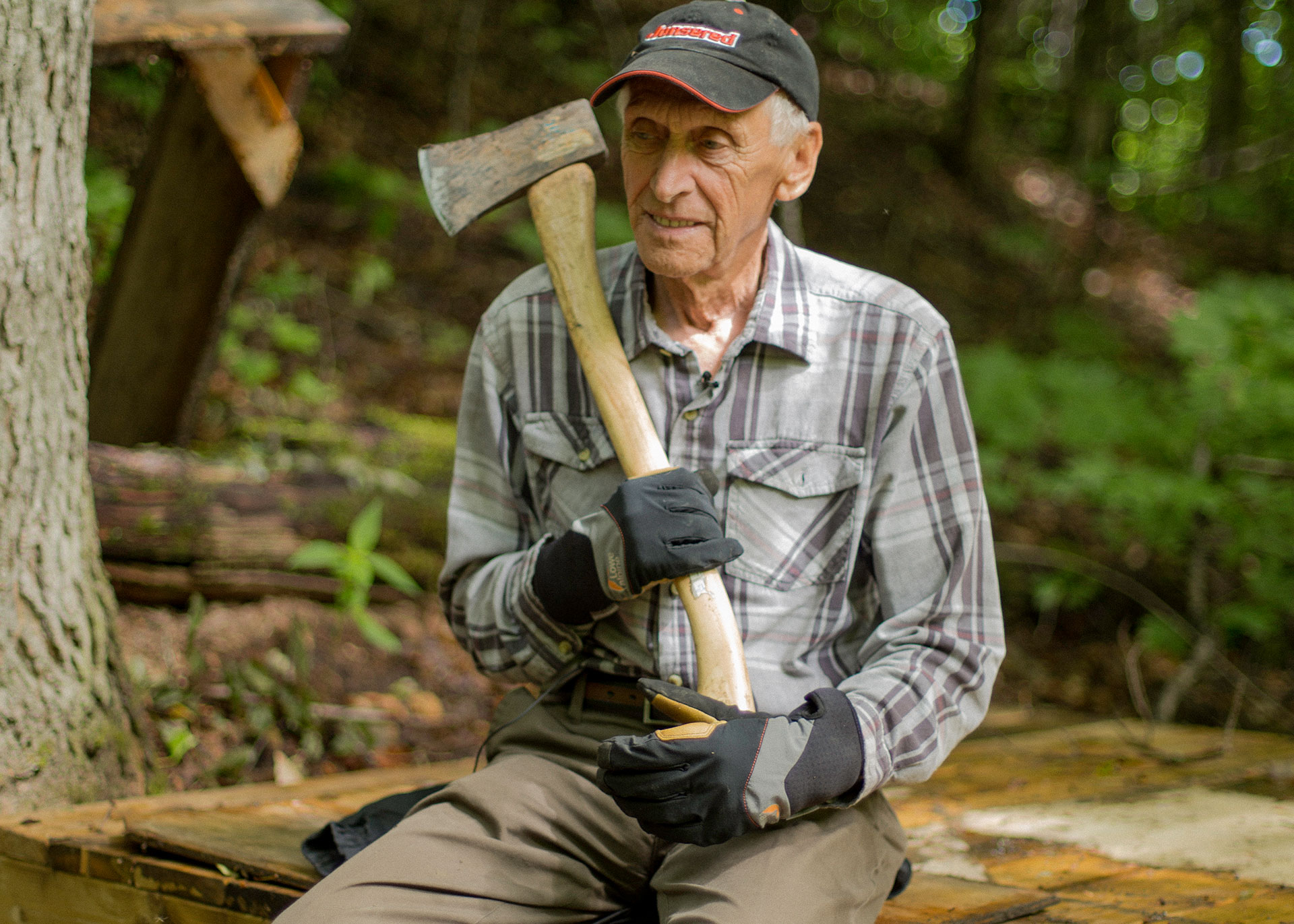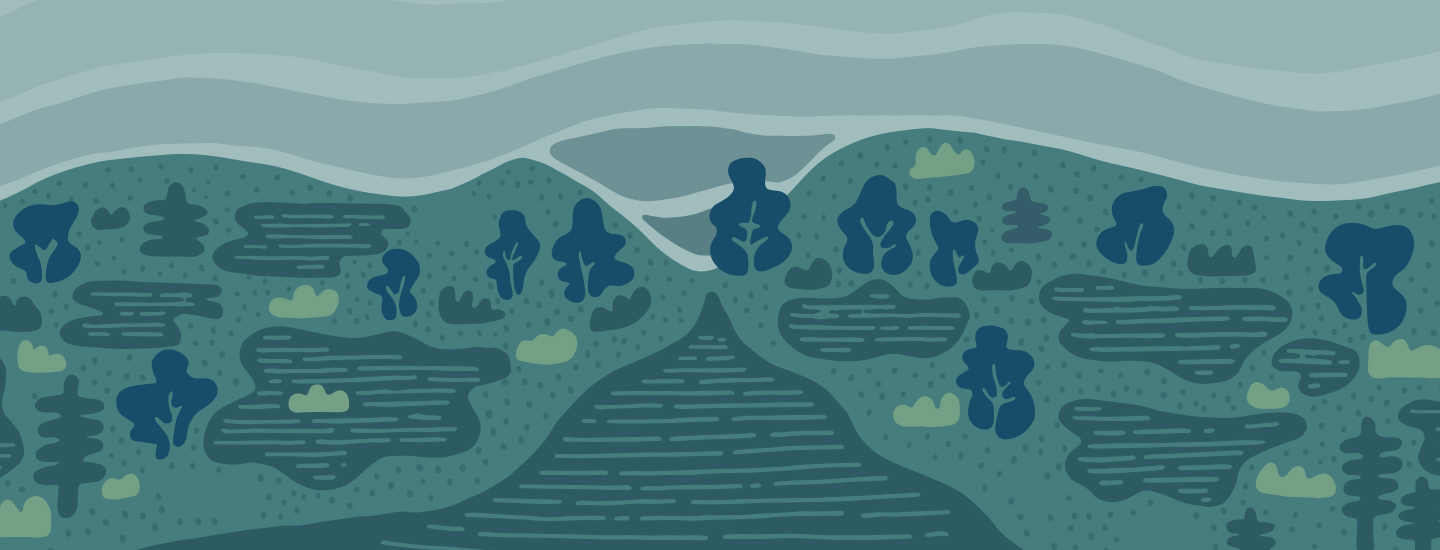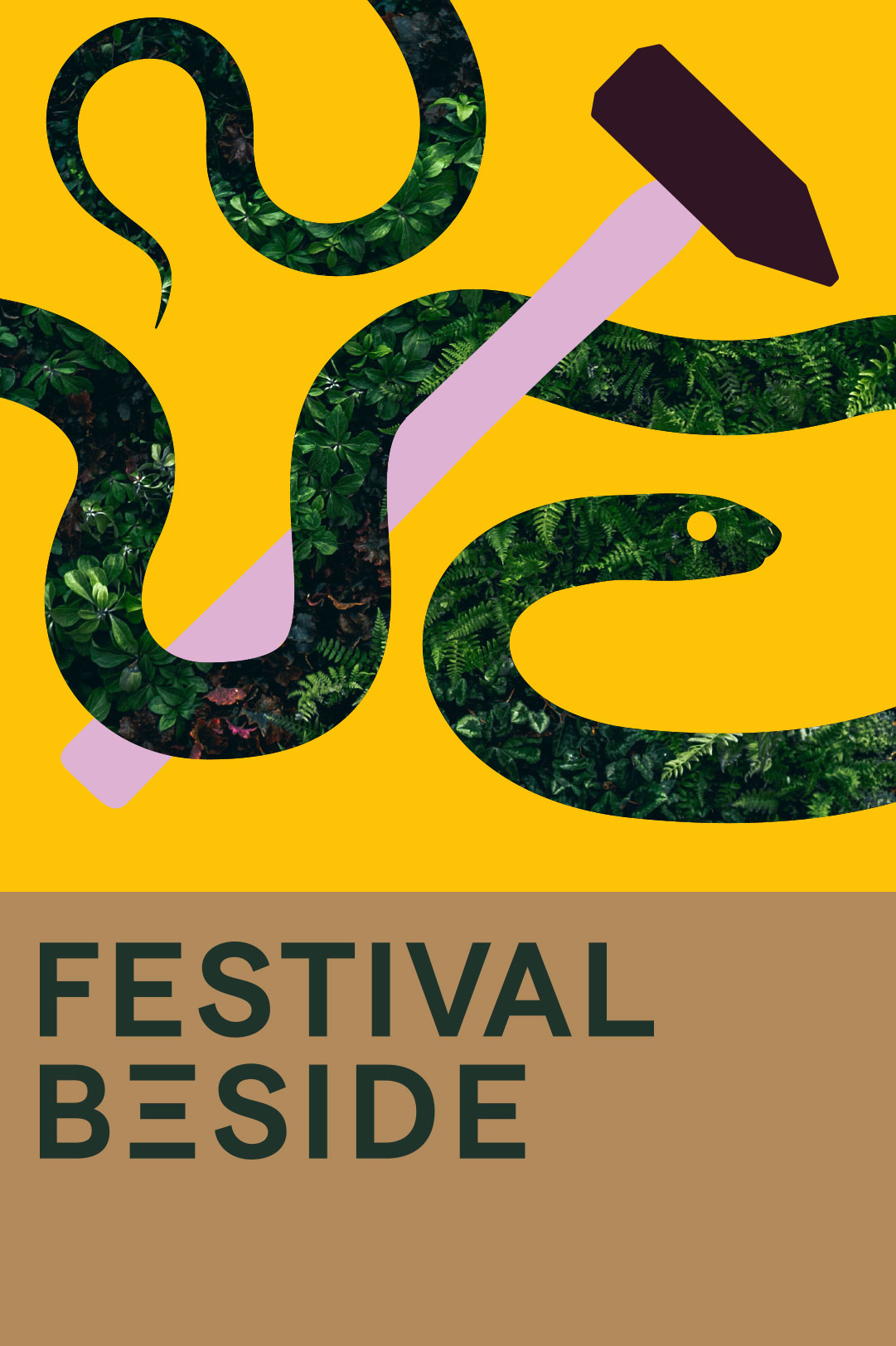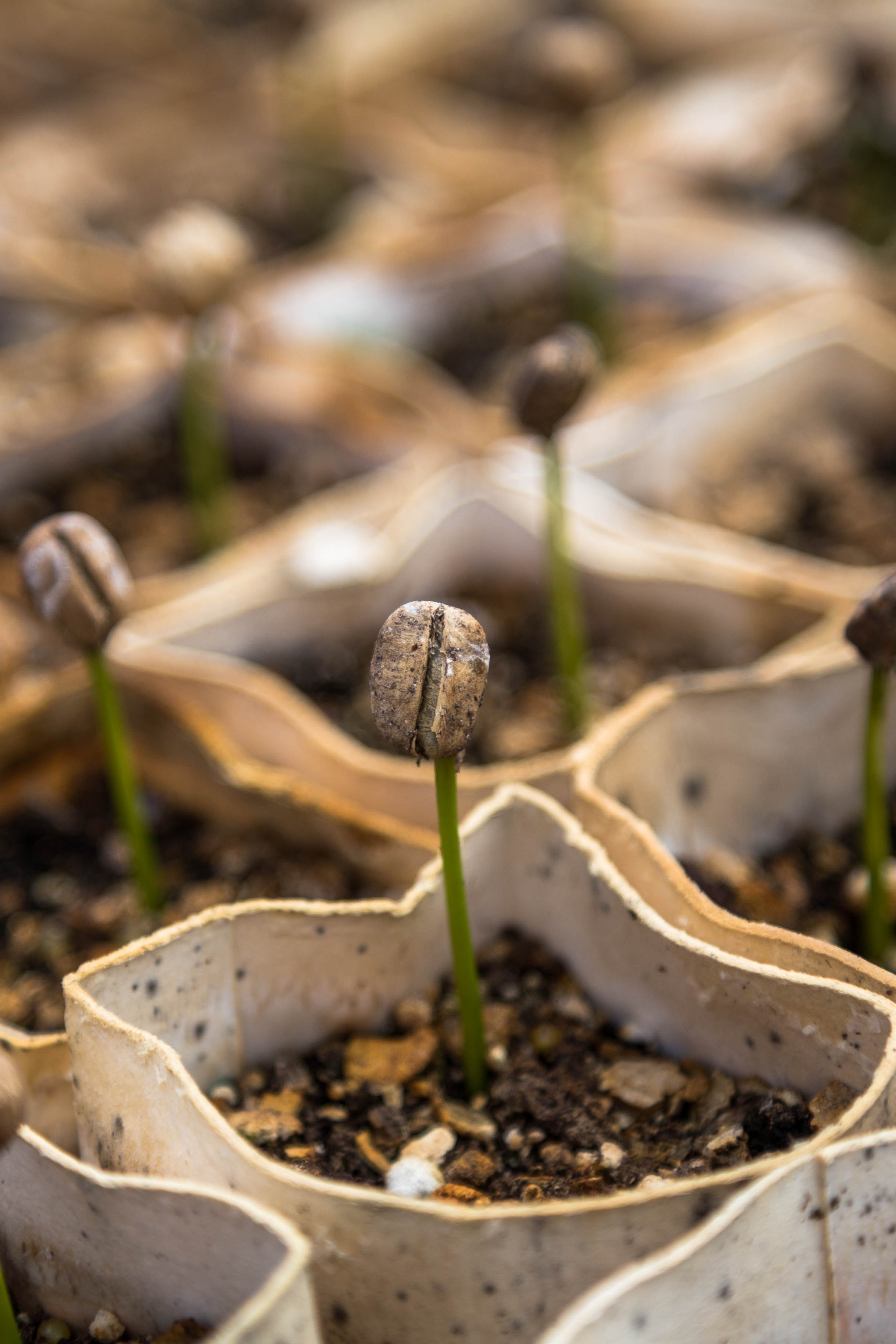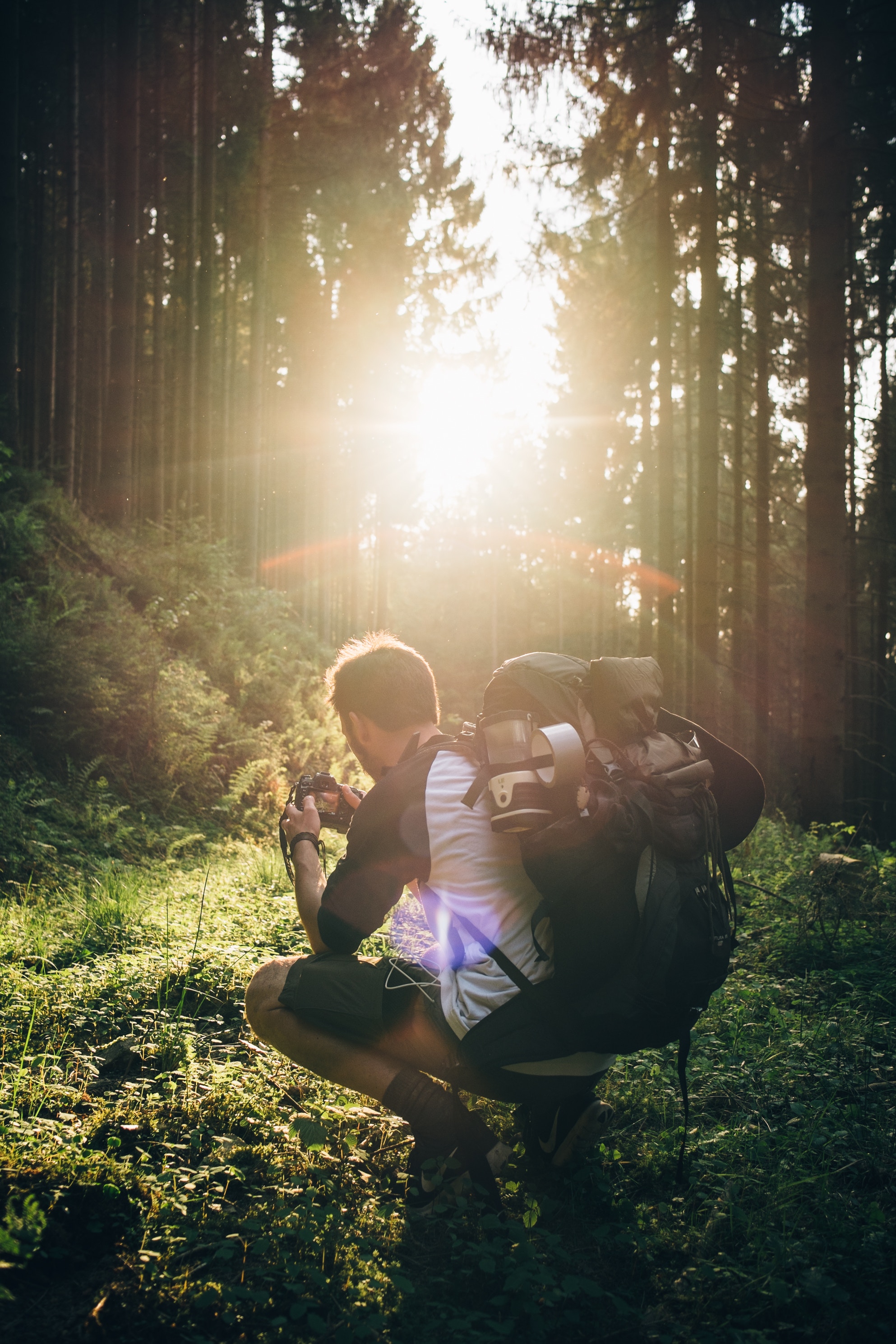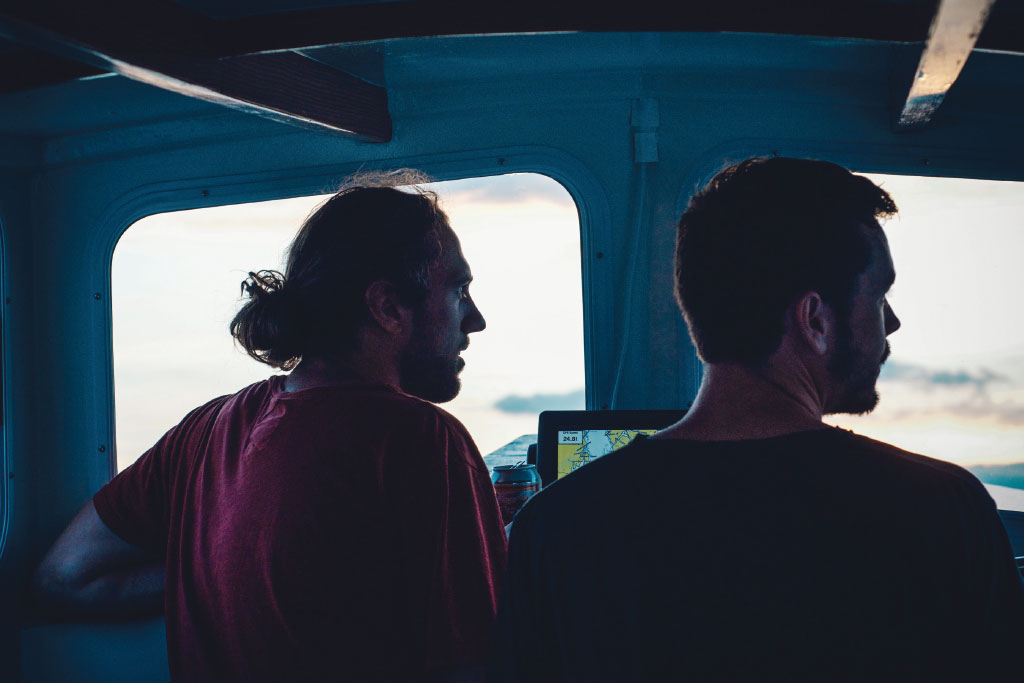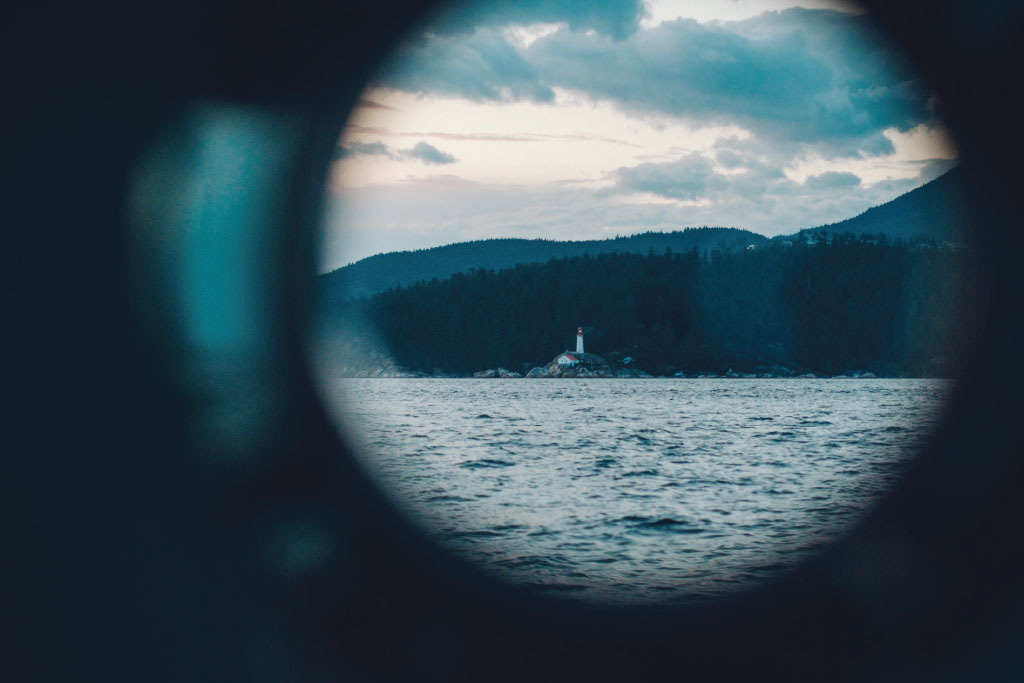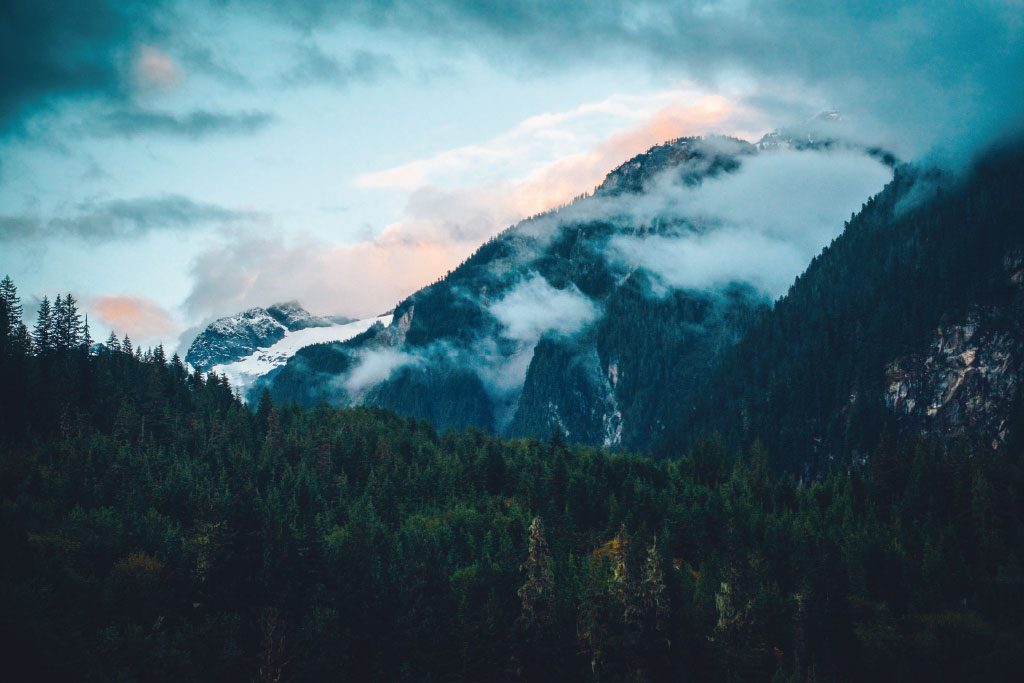Visual Essays
Likely-looking rivers
Optimism on British Columbia’s central coast.
“Shit.”
Eric held half of the valve in his vice-grips. He turned it slowly, staring at it disbelievingly, as though he were trying to will it back onto the boat trailer’s brake line, where it had been before this ill-fated attempt at changing the fluid.
TEXT & PHOTOS Michael Barrus
At our feet, viscous liquid began to pool as it dripped out from the brake lines and through the other half of the now-useless valve that was still frozen in place on the now-also-useless boat trailer. I leaned against the boat’s blue hull. Eric had built the 19-foot wooden tugboat last summer, and christened it the Dipper. It was beautiful. Teak rails followed the sweep of the deep, midnight blue hull, and a stout white cabin rose from the bow. Its curves were plump and sensual, as though it had been plucked from a Botero painting. It was heavy too, and I imagined a sudden stop on the highway sending the brakeless trailer hurtling past us, the Dipper flipping and rolling and exploding into blue and white shards of wood that spun in the air like a panicked flock of birds. I shook my head as though to shake the image out of my mind. We couldn’t drive the boat anywhere. The trip was over before it began.
“Well, that seems about right for us,” said Spence. I grimaced; Eric continued to stare disbelievingly at the valve. The three of us had taken to calling ourselves Team Cohopeless, an homage to coho salmon and the luck we had in our pursuit of them. Our hopelessness extended beyond fish to include many elements of our trips together. On one trip, our boat ran out of fuel on the water and we had to pay $300 to be towed the 20 km back to the dock by an old local who took unnecessary pleasure in reminding us that we were, in fact, idiots. On another, we were on a remote section of coastline on Vancouver Island when 100 kph winds sent waves into the forest where we were camped, flooding our tents and washing most of our gear into the sea. We suffered countless other pedestrian defeats—heavy rain that soaked us and rose rivers to unfishable heights, outboard engine failures, sprung leaks, snapped rods, snapped lines, and many, many fishing trips without fish. A broken valve was a new obstacle, but the creep-ing sense of despair it inspired was unfortunately familiar to us by now.
We had intended to go to the Pitt, a remote, meandering glacial river a hundred kilometers north of Vancouver. The Pitt is populated by enormous trout, and we had earned success there through many kilometers of riverside hiking and many flies swung through many runs. We knew which flies to use, which stretches of river held fish and what time of year to be there. But to get to the Pitt, we needed to trailer the boat, tow it to the lake our river fed into and travel the lake’s roadless length until reaching the river itself. And each drop of brake fluid that fell from the lines into the ever-expanding pool reminded us that we would not be trailering the boat anywhere.
“Fuck it,” Eric said. “Let’s launch and head north instead. We’ve got the time off and we’re already packed.” Spence and I shrugged, consenting reluctantly, and hooked the trailer to the truck. We had four days, and seeing how far north we could go in that time seemed as good a use of it as any.
The three of us had taken to calling ourselves Team Cohopeless, an homage to coho salmon and the luck we had in our pursuit of them.
Eric gingerly towed the Dipper the 300 meters from the harbour-side lot to the boat ramp. Upon launching, we pulled charts and chose an inlet several hundred kilometers northwest of Vancouver that looked sufficiently remote to at least guarantee solitude, if not fish.
Eric steered us northbound, through inlets and past mountains. Losing the Pitt stung, and while I was more than willing to choose exploration over the comfort of the familiar, I had badly wanted to catch some fish on this trip. Stumbling blindly down a river we knew nothing about seemed destined to be another story of failure for Team Cohopeless. I climbed into the hull where the sound of the water rushing past was crisp and clear, and was lulled into a fitful sleep.
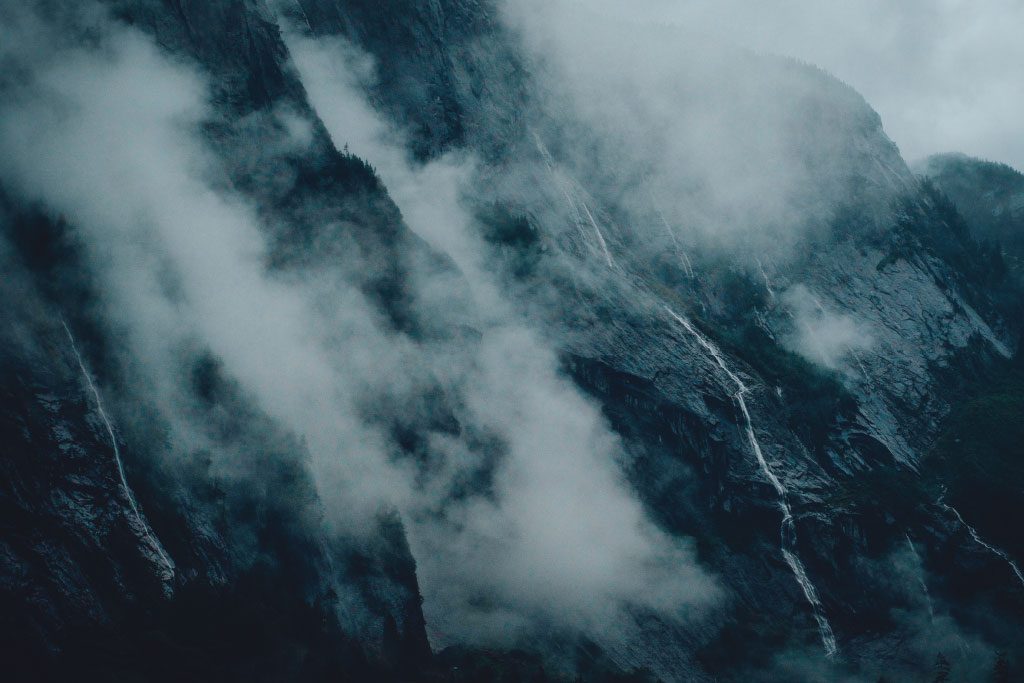
I woke up some hours later to the boat pitching and rolling, and stumbled into the swaying cabin for a look outside. We were surrounded by blackness, and yet there was enough light on the water to see its surface torn by tidal rapids. Disoriented, I leaned toward the windows and scanned the darkness that surrounded us. It was not yet night; instead, impossibly high obsidian cliffs, stained with rain, threw this narrow channel through which we passed into deep shadow. We watched in silent awe.
“This might be better than the Pitt,” said Spence. No one disagreed. The river’s estuary lay at the back of the long inlet. Rivulets of fog spilled down the mountains, swirling around trees like water around boulders in a steep stream. Soft hummocks of grass ran along the shoreline, and ancient cedars and firs hung heavy with long wisps of moss lined the shoreline behind them. The water was a grey sheet of glass, calm and utterly featureless. Eric nosed the Dipper in, and I stood at the bow and watched as we inched over cobblestones and oysters the colour of bleached bones. The clouds were thick and low. Mountain peaks appeared and disappeared at impossible heights. They towered over the valley, so high and steep they appeared to hang directly above us.
I slid off the Dipper and into the water, sending arcs of ripples spreading across the glassy surface. The cobbles were slick beneath my wading boots as I stumbled and danced across the tidal flats. A line of bright alders bisected the first at one end of the bay. I scrambled up a bank of loose cobbles and into the alders, where they bowed inwards over a waist-high patchwork of blackberry bushes. All that remained of an old roadbed were two brushy tire tracks that looked like uncannily parallel game trails. Overhead, the bowing alders glowed with muted light.
It was easier to say I was going fishing than to explain this feeling of limitless, fantastic possibility.
We worked our way up the roadbed. After a few hours, the alders bent further and grew in on us until the path we were on resembled less the high-roofed tunnel it had at the start and more a low culvert through the brush. We narrated our progress with grunts and curses, the sound of tearing leaves and snapping branches our sound-track. The sounds of water grew louder until the soil dropped from beneath our feet and we were at the edge of a cutbank that stood several meters above the green river. We slid down and collapsed onto the cobblestone bank, as relieved to be out of the brush as we were glad to be on the river.
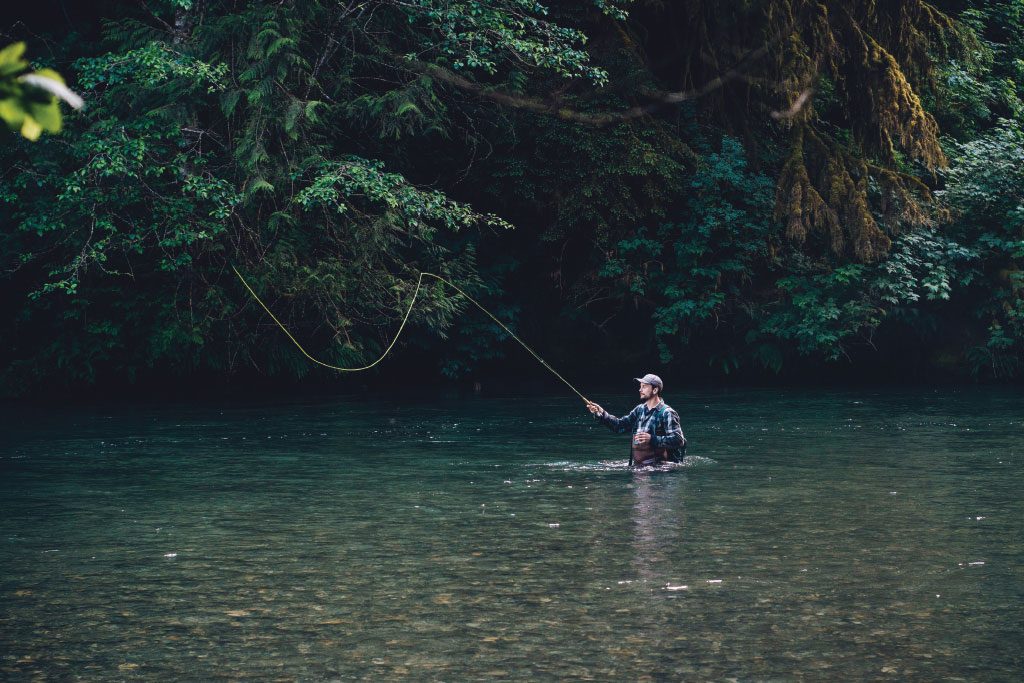
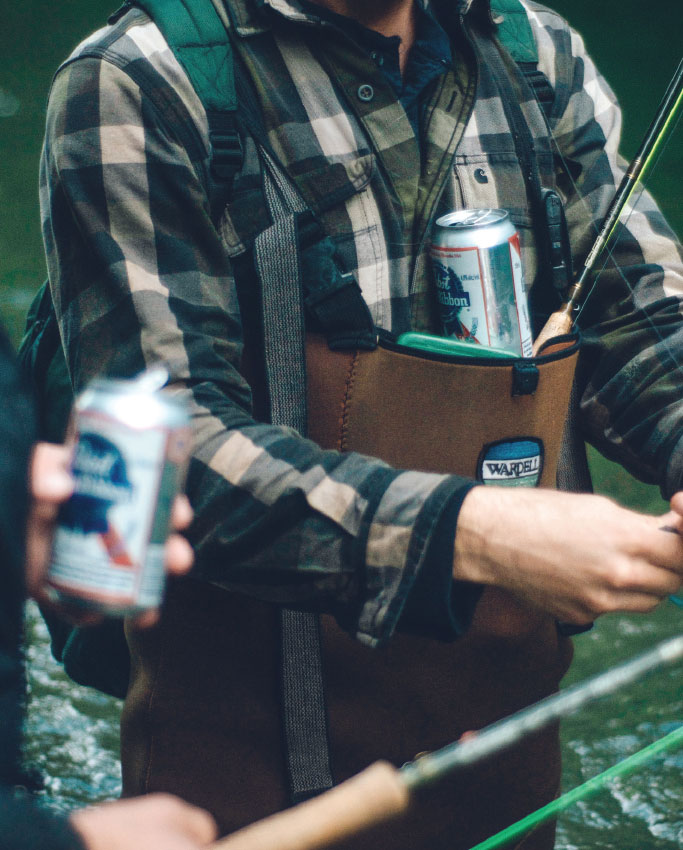
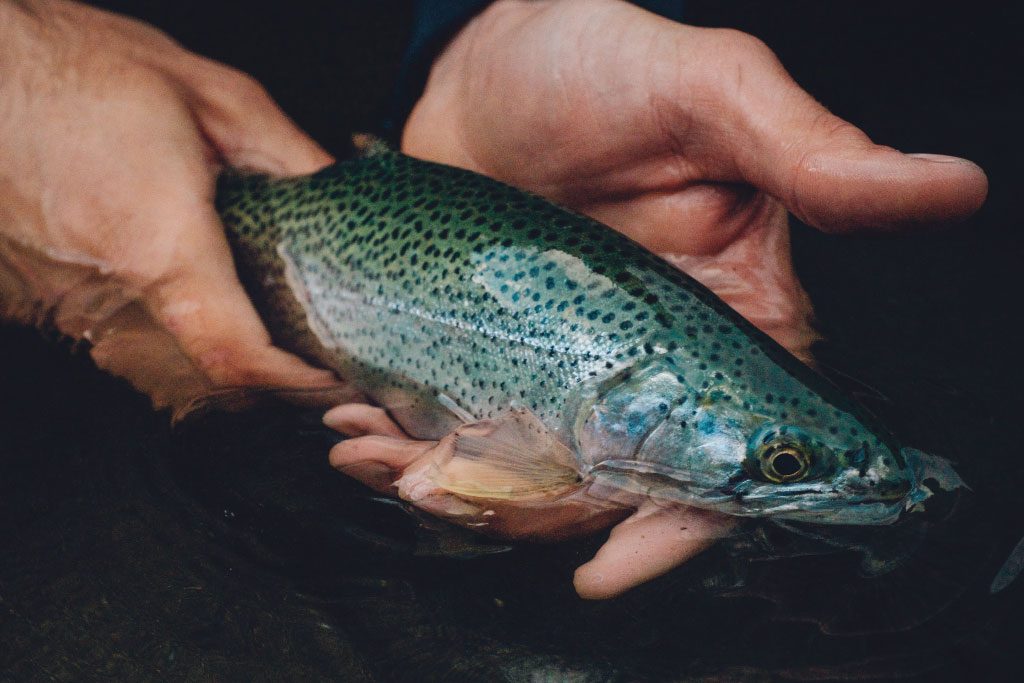
While Eric and Spence opened celebratory pil-sners, I tied on a white fly and began methodically casting into the first run. The feeling of uneasy, quiet defeat that coloured so many of our trips rose in me with each fruitless cast. I moved through one run and into the next. It wasn’t exactly that a trip without fish would be a failure. I wanted to catch fish, but fishing was as much an excuse I used to explain these trips to others as it was the reason we went on them. It was easier to tell someone I was fishing than it was to explain the feeling of limitless, fantastic possibility that swelled inside me when tracing a likely-looking river on a map, the way it bent to my imagination into a series of perfect emerald runs and pools backed by ancient, towering cedars, with elk and bears roaming the banks and rainbow trout and salmon in the river’s depths. No matter how unlikely, it was possible that each unknown, remote river on the map was as incredible as the one that existed in my mind. This was the reason we had packed up the boat, spent hundreds of dollars on fuel and hours on the water, pushed through kilometers of brush and bear country. Not because we needed to catch anything, but because we were propelled by the limitless possibilities of this place when it was just a line on a map. Still, those fantasies did include fish.
My neon fly line traced an arc across the river’s surface, and a streak of chrome rose from the cobblestone bottom to meet its swinging path. I thought it was a play of the light until the silver streak engulfed my fly and the line went tight. I set my hook, still half-believing I was watching a complex illusion in a prism. The rainbow trout rose to the water’s surface, slashed its thick chrome tail and turned downstream, my reel whining as the fish ran ■
—
To read more . . .
This article was initially published in Issue 01 of BESIDE Magazine.
Magazine 01